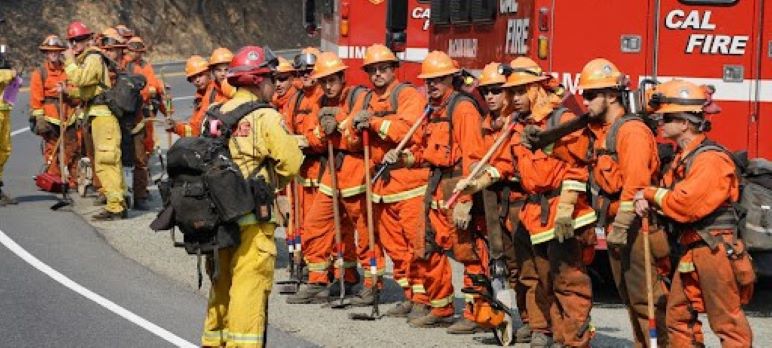I’ve spent nearly four decades behind bars, witnessing the harsh realities of forced prison labor. This system of modern-day slavery strips inmates of their dignity and humanity.
Proposition 6, which would amend the state Constitution and abolish forced prison labor in California, is a critical step toward justice and equality.
The roots of forced prison labor in the United States date back to the post-Civil War era. With the 13th Amendment abolishing slavery “except as a punishment for crime,” states — particularly in the South — exploited this loophole to essentially re-enslave Black Americans through the criminal justice system. Convict leasing became widespread, subjecting prisoners to brutal conditions as they were rented out to private companies for labor.
This practice perpetuated racial oppression and economic exploitation under a different guise.
In California, this legacy continues. Despite advances in civil rights, the state’s prison system still uses inmates for labor under the pretense of rehabilitation. Tasks range from fighting wildfires to manufacturing goods, often for pennies an hour or no pay at all.
After spending decades in the California prison system, I’ve seen the brutal realities of forced labor up close. Inmates, including myself, are often compelled to work long hours under the threat of punishment. The tasks are physically demanding and mentally taxing, with little to no compensation.
This system dehumanizes us, treating us like commodities rather than individuals with rights.
I’ve seen fellow inmates suffer lifelong scars from burns incurred while working in prison kitchens for as little as 19 cents an hour. The work environment is rife with tension, as inmates struggle to meet the demands of their supervisors while navigating the complex politics among themselves and with prison staff. This creates an atmosphere of constant anxiety and stress.
Inmates are also denied the basic rights and protections afforded to other workers. The dangerous tasks they perform often lack adequate safety measures, putting their physical and mental health at risk.
Ending forced prison labor is not only a moral imperative but also a practical one. The hidden costs of this system are borne by taxpayers through increased health care expenses, legal challenges and the long-term social costs of recidivism. By abolishing forced labor, resources can be redirected toward rehabilitation and education programs that genuinely help inmates reintegrate into society, reducing re-offense rates and ultimately saving taxpayer dollars.
Prop. 6 is essential for dismantling the system of forced prison labor in California. This proposal aims to eliminate involuntary servitude as a punishment for crime, addressing a loophole that has long perpetuated racial and economic inequalities.
This isn’t merely a concern for inmates; it’s a critical human rights issue impacting everyone. California has a chance to unite to eradicate this inhumane practice and work towards building a more just and compassionate society, where everyone is treated with dignity.
Donald “C-Note” Hooker is an incarcerated poet, playwright, performing artist and award-winning visual artist. His writings have been published by John Hopkins University, John Jay College of Criminal Justice and others.


Totally disagree with this article. Prisoners should be required to work off the costs of their room and board.
I’m not sure I understand how this practice differs from someone being required to perform a certain number of hours of community service as a part of their sentence, once convicted.
WOW! “physically demanding and mentally taxing”, “struggle to meet the demands of their supervisors while navigating the complex politics among themselves”, “atmosphere of constant anxiety and stress.” >>> sounds like my job! The only difference is I didn’t harm someone else to get it.
YES I support “a more just and compassionate society, where everyone is treated with dignity” but if people choose to harm, injure (or worse) innocent victims then they should go to the back of the line. Sorry.
Hey, you don’t have to do the time if you don’t do the crime!
Four Decades in prison. What crimes did the author commit that keeps him incarcerated? Are we supposed to feel sorry for criminals? If you don’t want to be subjected to this “harsh” treatment, don’t commit crimes that will land you on n prison.